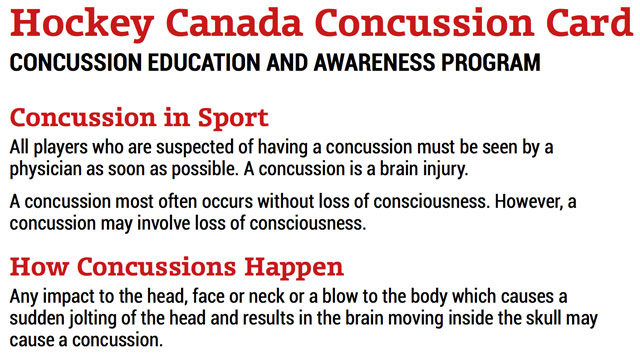Concussion Prevention Resource Centre
Even though full-contact (body-checking) is restricted to older age groups, the incidental contact and the speed with which hockey is played makes the brain is vulnerable to injury at all ages. Trauma may occur through direct contact to the head or face or indirectly through a whiplash effect. Injuries to the brain are characterized by an altered state of mind. It is the altered state of mind that is the key thing to look for with any head injury.
NOTE: Children are more sensitive to the effects of a concussion and will need to have a longer period of rest prior to returning to activity and the sport.
A concussion is a common injury, but since they cannot be detected on x-rays or CT scans, they have been difficult to fully investigate and understand. Fortunately, there have been many important advances in our knowledge of concussions, including how to identify, manage and recover from a concussion. Although concussions are often referred to as ‘mild traumatic brain injuries’ and often resolve uneventfully, ALL concussions have the potential for serious and long-lasting symptoms and so must be treated carefully and in consultation with a physician.
Click here to link to the Coaching Association of Canada information on concussions.
Hockey Canada Concussion Card
The Hockey Canada Concussion card has been created to provide quick and easy to find information on concussions. Information includes signs and symptoms, when to get immediate medical assistance, and the 6 step return to play strategy. This is a great tool for coaches, trainers, safety people, and parents.

